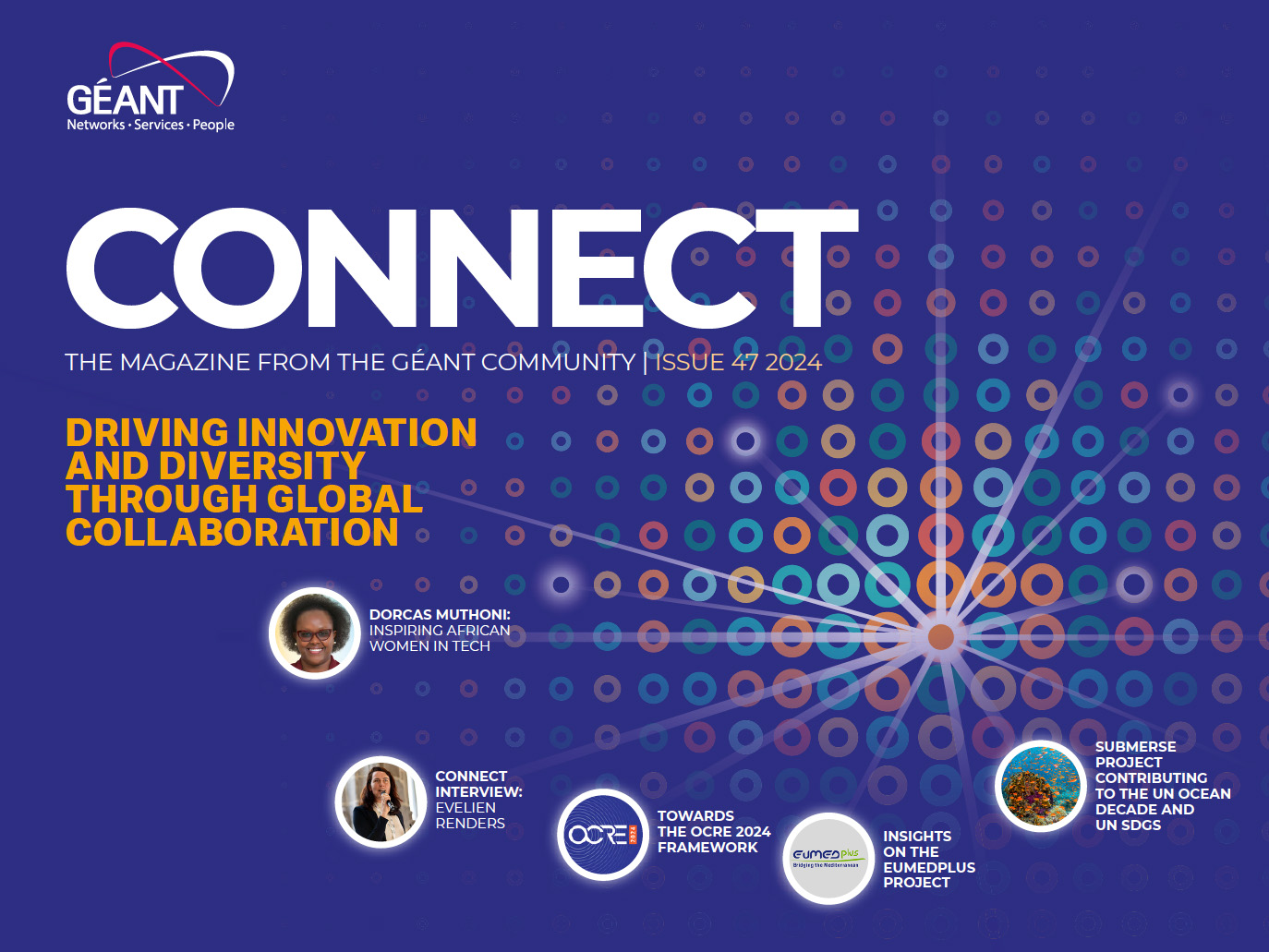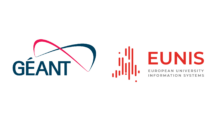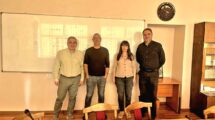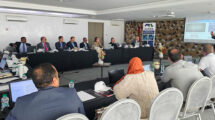Evelien Renders works at SURF as an advisor for international collaboration and has recently been appointed as the President of EUNIS. CONNECT spoke with Evelien, who delves into her various roles and provides an insight into what EUNIS means to the community.
What does your role at EUNIS entail?
EUNIS (European University Information Systems) is all about connecting people who are passionate about using technology to improve higher education across Europe. We bring together IT professionals, university leaders, and researchers to share knowledge, collaborate on projects, and influence policy for digital transformation. It’s a space where we can learn from each other and push for a future where technology genuinely enhances education and research.
As President of EUNIS, I’m involved in setting the strategic direction of the organisation. This means making sure we’re focused on the right things, like supporting digitalisation professionals in their roles, advocating for policy changes that benefit higher education, and creating a secure, inclusive digital environment. A big part of my job is bringing people together, whether it’s at conferences, through working groups, or in informal discussions, to spark new ideas and drive positive change.
Can you describe your role within TF-EDU?
I’m on the steering committee at TF-EDU (the Task Force for Educational Services and Activities) which is responsible for facilitating our NREN colleagues to learn from each other. With the annual survey, we create a big-picture view of the NREN educational service landscape. Our goal is to share how NRENs are facilitating their educational institutions with different tools and services, such as LMSs, Learning Analytics, and eduID, to fit together and how we can make them work better for everyone involved.
One of the things I love about this role is that we’re not just talking about what’s going well, but also what’s not working and why. We open up space for people to share their experiences honestly, which is crucial for learning and growth. TF-EDU is similar to a hub where ideas come together, and in the future, smaller working groups might form around specific challenges, such as integrating digital credentials or improving virtual learning environments.
Can you tell us a little more about your background prior to this?
I actually started my professional journey with a master’s degree in Classics, which might sound a bit unexpected for someone working in digital transformation! After graduating, I worked in event organisation at Radboud University, where I found my first taste of coordinating complex projects and engaging with diverse groups of people. From there, I moved to the international office as an Erasmus+ coordinator, working on student mobility outside Europe. This role introduced me to the Erasmus Without Paper project, where I witnessed how collaboration between different experts including architects, information managers, and functional application managers, could transform a cumbersome paper process into a streamlined digital solution.
After this, I shifted gears and joined the IT department as an information manager for education. This position provided me with a deeper understanding of how technology can support and improve educational processes. It was a fascinating blend of my experience in education and my growing interest in digitalisation, and it ultimately paved the way for my current roles at SURF and EUNIS, where I continue to explore how we can use technology to make education more accessible and effective.
What are you hoping to achieve within these current roles?
With EUNIS, I want to help digitalisation professionals in higher education to be seen as strategic partners, not just IT support. I believe they can be key players in transforming how universities operate, making them more resilient and ready for the future. For example, our Enterprise Architecture Special Interest Group organises an EA week where colleagues can learn how to put the Higher Education Reference Model into practice.
At SURF, we focus on ensuring our digital solutions are built around public values such as accessibility, reliability, freedom of choice, and privacy. This means prioritising open standards to prevent vendor lock-in and protect user autonomy, privacy, and security. By working collectively with members and public organisations, we can set strong conditions for suppliers, ensuring that digital solutions are not only accessible and secure but also adaptable to meet the evolving needs of our community.
One of the things I’m focusing on is building a comprehensive overview of the educational digitalisation landscape. It’s about getting everyone on the same page so we’re not reinventing the wheel in different corners of Europe. A concrete example is the EduXS project, where we’re creating a database of standards, services, and tools that institutions can use to avoid duplication and build on each other’s work.
What does EUNIS mean for the community?
EUNIS is a place where people from different parts of higher education come together to share what works, and what doesn’t, in digital transformation. It’s not just about technical solutions; it’s about understanding the bigger picture and how we can all contribute to improving education. For the community, it means having a network of peers who face similar challenges and can offer insights, support, and collaboration opportunities.
Are you working on something special right now? Have you got a current favourite project?
Right now, I’m really excited about two projects, the first is EduXS. This is all about creating a map of the digital education landscape in Europe. It helps people see what’s already out there—standards, services, documents—so they can build on existing work instead of starting from scratch. For example, if an institution is looking to set up a new digital credential system, they can see who’s already done it and what standards they used. It’s about sharing knowledge and avoiding duplication. The second project is Visual Language for Educational Interoperability, which is a project close to my heart because it tackles the challenge of making a complex topic, interoperability, more understandable. We’ve developed a visual language to help people from different backgrounds discuss how to improve the student journey and make systems work together better. It’s been fascinating to see how using visuals can break down barriers and spark new ideas.
This can be found on www.interopvisual.eu. We would love to hear how people are using it, and for any additional feedback, please email interoperability@surf.nl
What do you envisage for the future of EUNIS and any potential collaborations between EUNIS and the community?
For EUNIS, I see us continuing to be a key player in the digital transformation of higher education, but I’d love to see even more collaboration with other networks and organisations. Imagine a future where the EUNIS community works closely with GÉANT and the NRENs to create truly integrated systems that support student mobility and digital learning across borders.
In TF-EDU, I’m excited about the potential to really connect the dots between different educational technologies and services. We’ve got a great opportunity to influence how digital tools are used and developed, not just within NRENs but in the broader higher education community. It’s about creating a resilient, adaptable system that supports both students and educators in the long run.

Read or download the full magazine here







